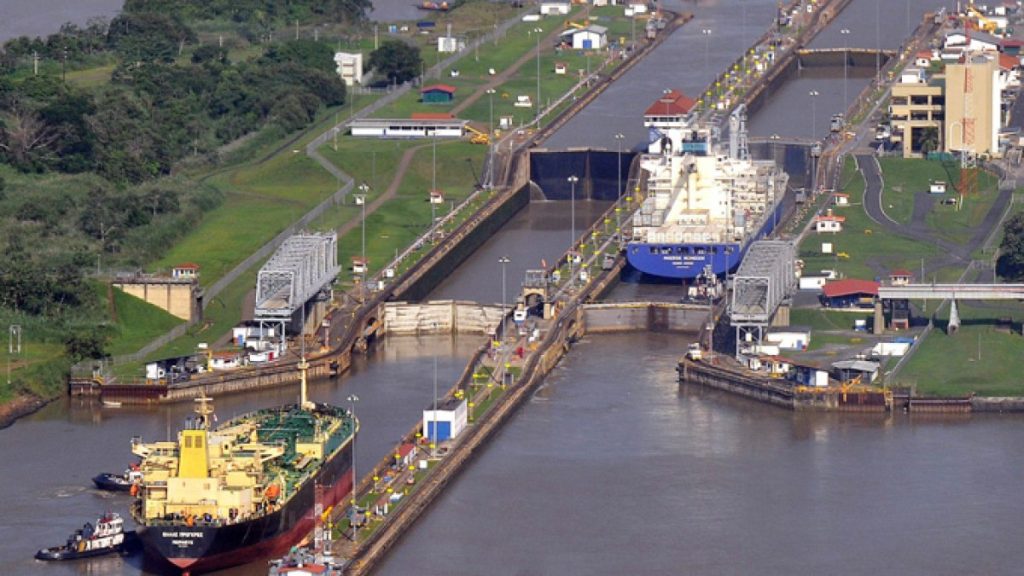Donald Trump’s recent pronouncements regarding the Panama Canal have ignited a firestorm of controversy, raising concerns about international relations, trade, and the potential for escalating geopolitical tensions. His assertion that Panama is overcharging US vessels for passage through the canal and his subsequent threat to reclaim control of the waterway have been met with widespread criticism and disbelief. This stance marks a significant departure from established diplomatic norms and raises questions about Trump’s understanding of international law and his approach to foreign policy.
The Panama Canal, a crucial maritime artery connecting the Atlantic and Pacific Oceans, has been under Panamanian control since 1999, following a period of joint administration with the United States. The transfer of control was a landmark achievement, symbolizing Panama’s sovereignty and its right to manage its own resources. Trump’s suggestion that the US could unilaterally reclaim the canal disregards this historical context and undermines the principle of national sovereignty. His claim that the canal was a “token of cooperation” with the US further exacerbates the situation, implying that Panama’s ownership is conditional upon its compliance with US demands.
Trump’s rhetoric is reminiscent of his previous pronouncements on trade and immigration, where he has frequently employed aggressive language and threats to achieve his policy objectives. His proposed tariffs on Mexican and Canadian imports, ostensibly to address undocumented migration and drug trafficking, are another example of his willingness to use economic pressure as a diplomatic tool. This approach, however, risks alienating allies and undermining international cooperation on critical issues.
The implications of Trump’s pronouncements on the Panama Canal extend beyond mere diplomatic disputes. The canal is a vital component of global trade, facilitating the movement of goods between Asia and the Americas. Any disruption to its operation, whether through political maneuvering or actual seizure, would have significant repercussions for the global economy. The uncertainty created by Trump’s statements could deter businesses from using the canal, leading to increased shipping costs and delays.
Furthermore, Trump’s insinuation of Chinese influence around the canal adds another layer of complexity to the situation. While China’s growing economic presence in Latin America is undeniable, Trump’s suggestion that Panama might cede control of the canal to China is unsubstantiated and appears designed to stoke fears about Chinese expansionism. This rhetoric could further escalate tensions between the US and China, potentially leading to a new Cold War scenario.
Trump’s demands regarding the Panama Canal are not only legally and diplomatically questionable but also strategically unsound. Alienating Panama, a key regional partner, would serve no US interest and could undermine regional stability. Moreover, any attempt to seize the canal would likely be met with fierce resistance from Panama and the international community, potentially leading to a military confrontation with unpredictable consequences. The international community should unequivocally reject Trump’s rhetoric and reaffirm its commitment to upholding international law and respecting national sovereignty.
It is crucial to recognize that the Panama Canal is not simply a piece of infrastructure but a symbol of Panamanian sovereignty and a testament to the country’s right to self-determination. Trump’s pronouncements, therefore, represent not just a diplomatic blunder but an affront to the Panamanian people and their history. The international community must stand in solidarity with Panama and reject any attempt to undermine its sovereignty. The future of the Panama Canal, and indeed the stability of the region, hinges on the international community’s commitment to upholding the principles of international law and respecting the sovereignty of all nations. Any attempt to rewrite history or impose unilateral demands on sovereign nations will ultimately backfire and undermine global peace and security. The Panama Canal must remain under the rightful control of the Panamanian people, free from external interference and threats.

